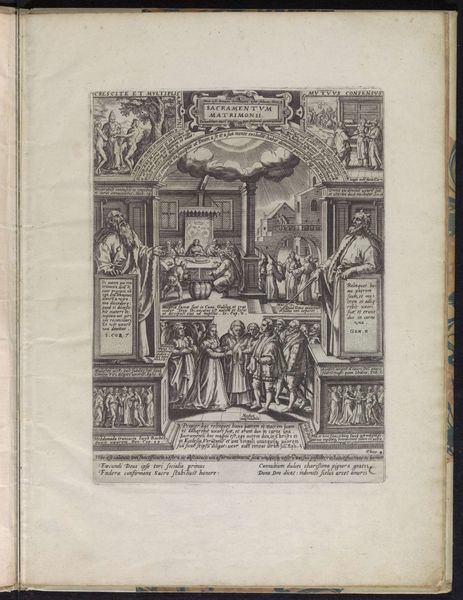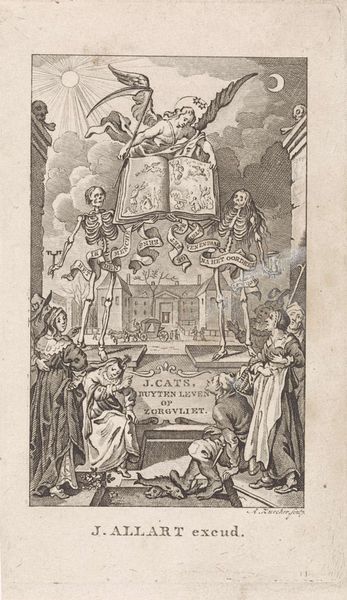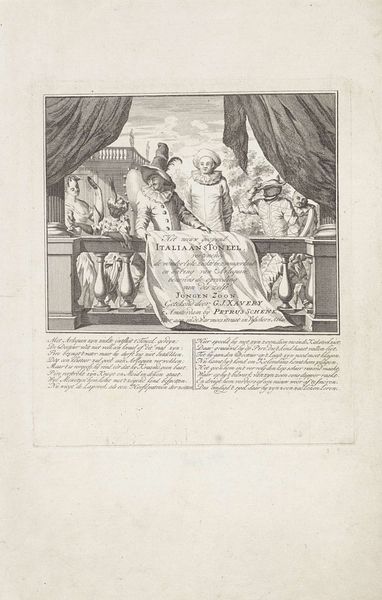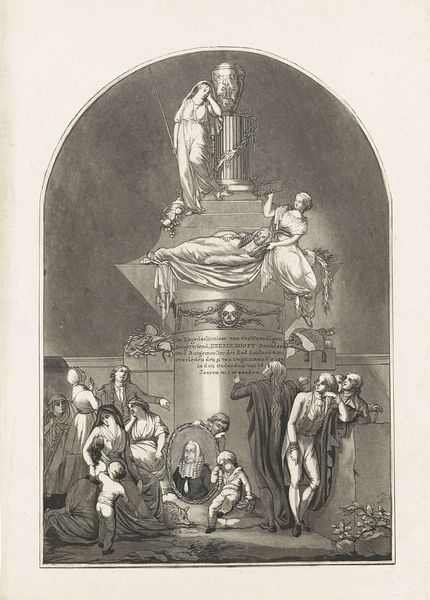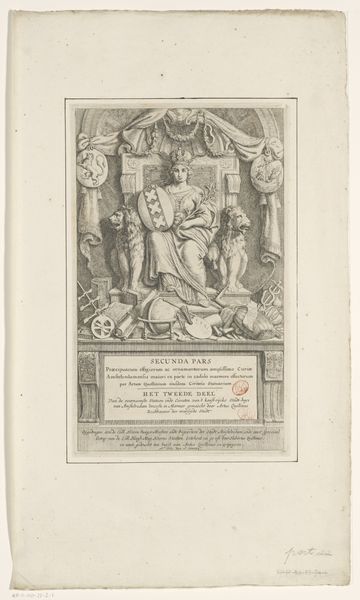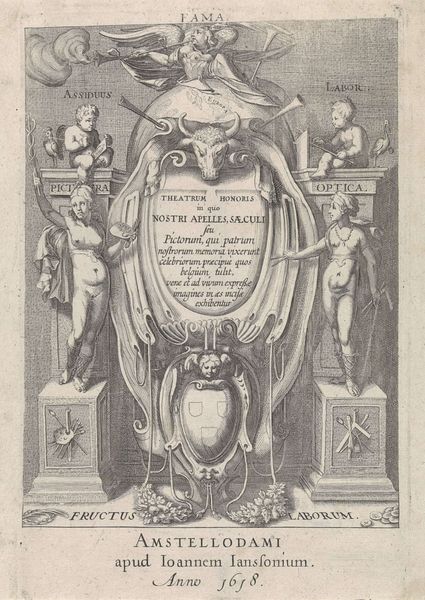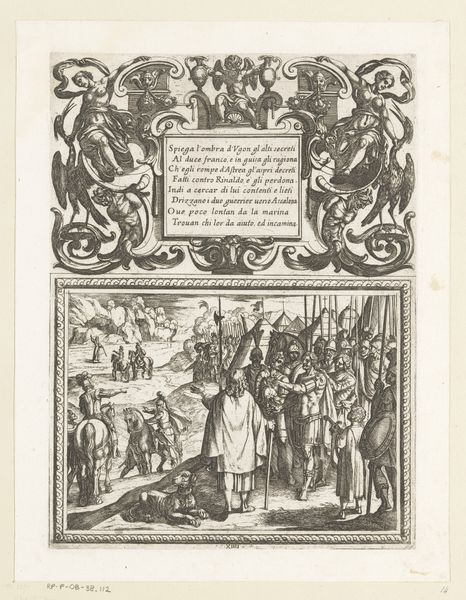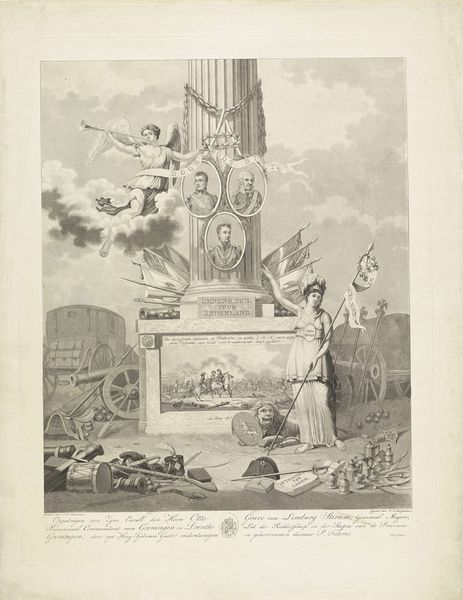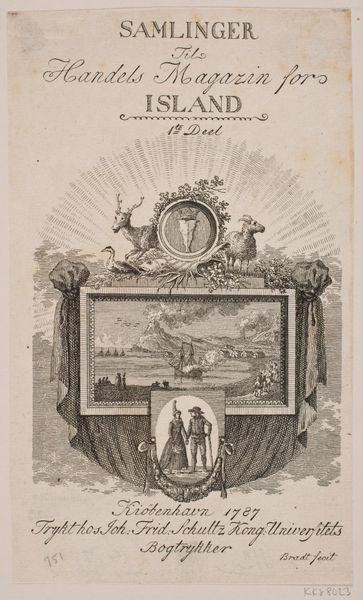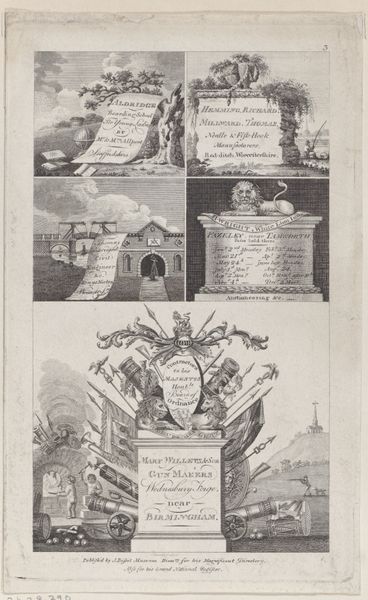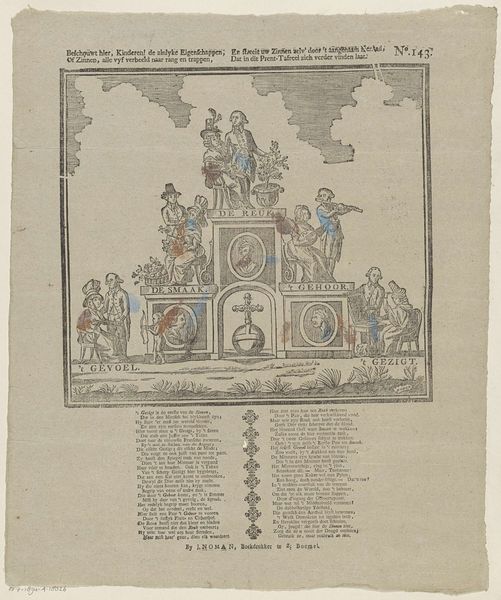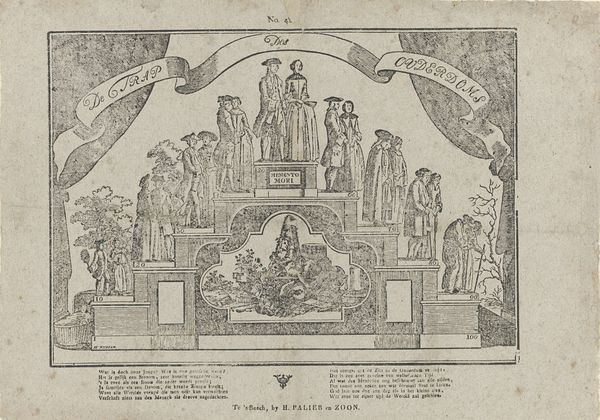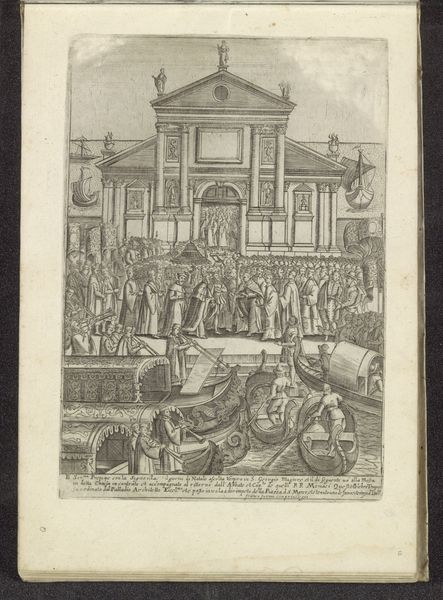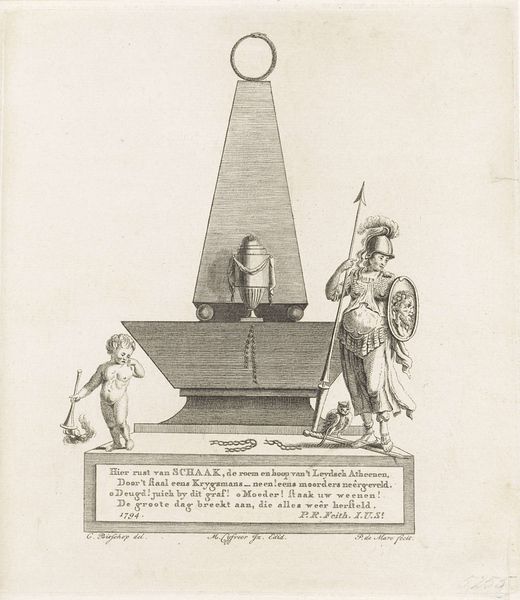
print, engraving
#
neoclacissism
#
allegory
# print
#
old engraving style
#
romanticism
#
history-painting
#
engraving
Dimensions: height 183 mm, width 133 mm
Copyright: Rijks Museum: Open Domain
This print was made by Cornelis Bogerts in 1815. Etching is an indirect process, traditionally used for reproduction, but here deployed to commemorate the Battle of Waterloo. The etched lines are achieved through a chemical process of biting into a metal plate with acid, after it’s been prepared with a waxy ground. The plate would then have been inked and printed onto paper. As you can see, the quality of the line is quite specific, lending itself to detail. Consider the way Bogerts has described the texture of military accoutrements and political pageantry. It is worth noting that the print was destined for wide distribution; this was a popular medium, and its significance lies in how it conveyed political messages to a broad public. There is a lot of labor involved in the depicted battle, but this is a world away from the labor expended to create and circulate this memorial image. The importance of understanding this artwork lies in the way the printmaking processes both embodies and disseminates a very specific view of history.
Comments
No comments
Be the first to comment and join the conversation on the ultimate creative platform.
